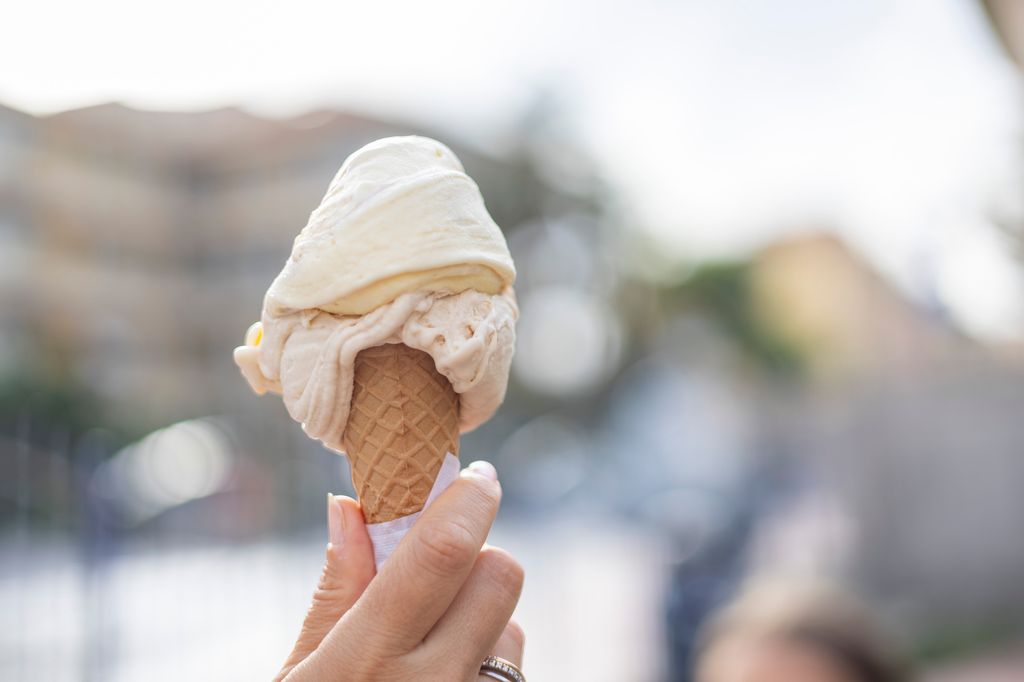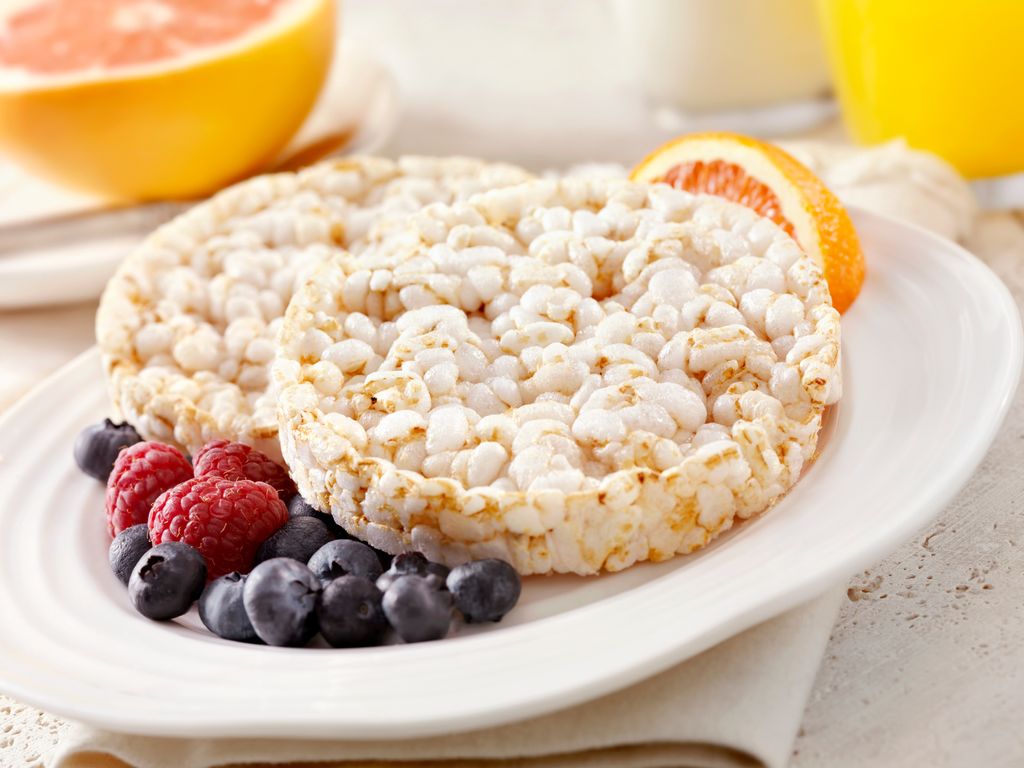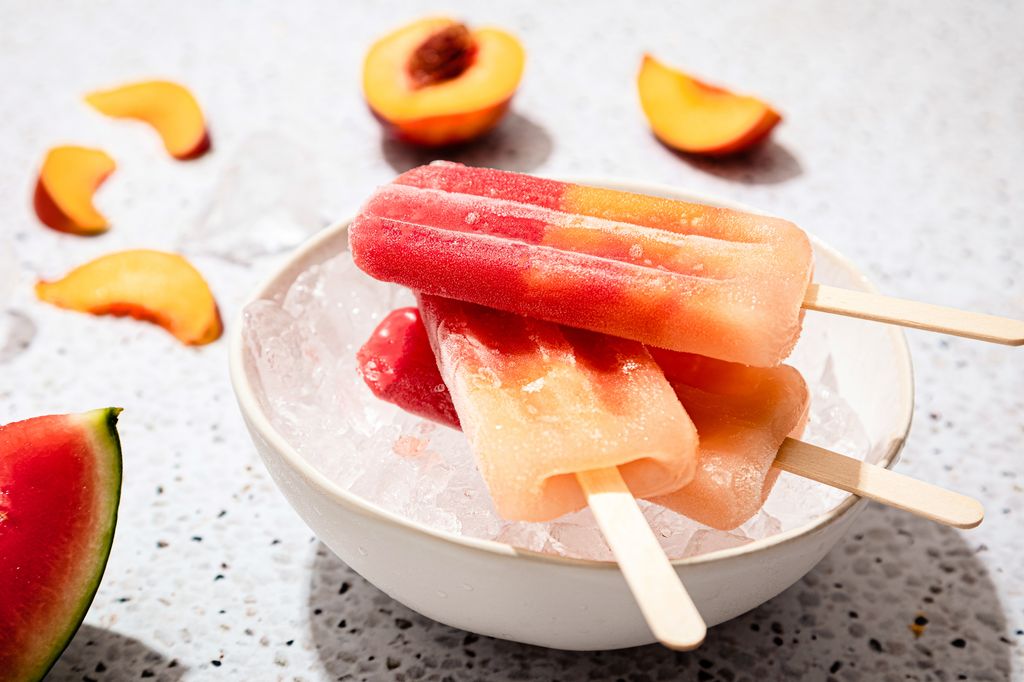Summer should be a season of lightness, longer days, looser clothes, alfresco meals. But for many of my clients, the warm months bring an unexpected burden: bloating. It’s the kind of discomfort that quietly ruins afternoons, making you feel sluggish, distended, and not quite yourself.
Often, it’s not the volume of food that’s to blame but the type. Many of the snacks we instinctively reach for during hot weather are marketed as light or refreshing, but they’re often packed with ingredients that irritate the gut and disrupt digestion. If you’re navigating gut sensitivity, or just want to feel lighter and more comfortable, knowing what to reach for (and what to avoid) can make all the difference.
1. Swap flavoured sparkling water for this
It’s hot, you’re thirsty, and a can of mango-flavoured sparkling water sounds perfect. But while it may be sugar-free and marketed as natural, many of these drinks contain artificial sweeteners like sorbitol or erythritol, which can ferment in the gut and lead to gas and bloating — especially for those with sensitive digestion or IBS.
Better choice: Still water with fresh lemon, lime or cucumber. Add a sprig of mint or a few slices of ginger to aid digestion. You’ll hydrate without disrupting your gut flora or overloading your system with untested additives.
2. Swap ice cream for this
Nothing says summer like a scoop of ice cream, but dairy, emulsifiers and stabilisers used in many brands can cause significant digestive issues. Even dairy-free versions often contain gums and thickeners that aren’t exactly gut-friendly.
Better choice: Coconut yoghurt topped with blueberries or strawberries. It offers the creaminess you crave with gut-calming benefits. Coconut contains MCTs (medium-chain triglycerides) which may support digestion, and fresh berries provide fibre and antioxidants without the refined sugar hit.
3. Swap rice cakes for this
Rice cakes are often seen as a low-calorie snack option, but they’re highly refined and can spike blood sugar — leading to energy dips and digestive sluggishness. They’re also fairly void of fibre, which the gut needs to keep things moving.
Better choice: Look for crackers made from flax, chia and sunflower seeds. These are naturally rich in fibre and omega-3s, which soothe inflammation in the gut lining. Pair them with hummus or a slice of avocado for a snack that actually satisfies.
4. Swap popsicles for this
Popsicles made from fruit juice seem innocent enough, but even natural sugars can ferment in the gut, particularly fructose-heavy options like apple or pear. For women in midlife especially, excess fructose can be a bloating trigger.
Better choice: Peel and freeze kiwi slices or watermelon chunks on toothpicks. Kiwi contains actinidin, an enzyme shown to aid digestion, and it’s lower in fructose than most fruits. It’s also fun to eat and naturally cooling.
5. Swap snack bars for this
Those snack bars labelled with words like “raw,” “natural,” or “clean” are often anything but. Dates, syrups, pea protein, inulin, and agave are common ingredients, and while they sound virtuous, they often leave clients with gassy, gurgling guts.
Better choice: Make a batch of energy balls at home using oats, almond butter, a touch of honey and seeds. They’re easier to digest, properly balanced, and don’t contain surprise ingredients. Keep them in the fridge for a grab-and-go solution that actually nourishes.
The gut-friendly summer mindset
Gut health isn’t about restriction or obsession, it’s about tuning in. When the weather warms, our routines shift, our appetites change, and it’s the perfect time to reset. Opting for whole, simple ingredients isn’t a punishment. It’s a way of honouring what your body actually needs to feel its best.
As someone who’s worked with hundreds of women experiencing digestive issues, I can tell you this: bloating isn’t something you have to accept. With small, intelligent swaps and a little curiosity about what’s in your food, you can feel light, energised, and at ease in your own skin.
Faye James is a Sydney-based accredited nutritionist and author of, The 10:10 Diet, The Menopause Diet, The Long Life Plan and her latest book, The Perimenopause Plan.
Read the full article here










